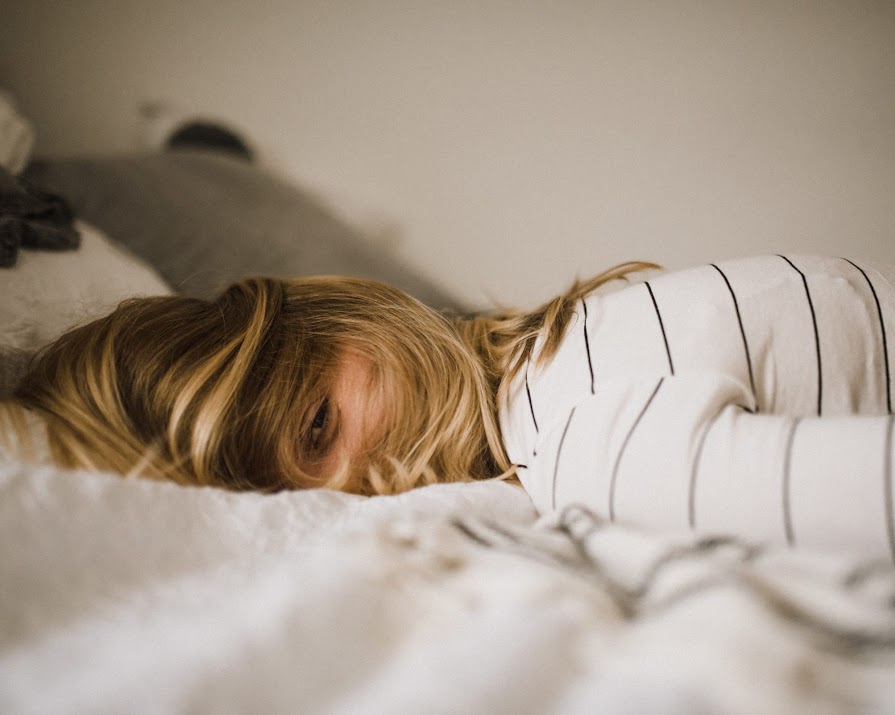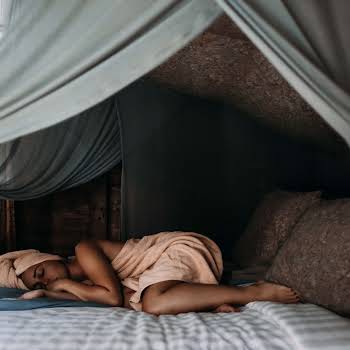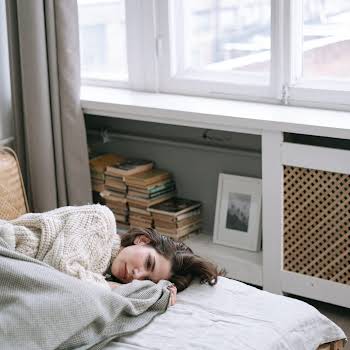
A sleep consultant shares key steps towards building a good nights’ sleep
By IMAGE
20th Jun 2020
20th Jun 2020
Alex is a sleep consultant and mother to two children under four, living in Barcelona.
Today I had a revelation. Somewhere between convincing my 2-year old that she was tired and did need a nap and coercing my 4-year-old into playing quietly so her sister could have the aforementioned nap, I realized that I too, was tired.
As a sleep coach, one of my strengths has been in guarding my children’s sleep with all the wrath and grit of a lioness guarding particularly delicious and rare bone. Yet my sleep necessities are often bottom of the pile in terms of importance. My under-eye bags tell testament to this tale. So why is it that my sleep is not the top priority on my to-do list? I have studied sleep. I know the importance of sleep. And I firmly believe it is something we should all know about too.
Shakespear said
“Weary with toil, I haste me to my bed
The dear repose for limbs with travel tired;
But then begins a journey in my head
To work my mind, when body’s work’s expir’d”
He was not wrong. During sleep, the brains’ neurological network sort through our experiences and problems of the day, comparing and contrasting existing and novel ideas, re-assessing core fundamentals, and re-evaluating previous judgments. Sleep effectively allows us to learn new concepts, file away new information, and discard outdated or unimportant facts.
Take inventory of your habits in each of the following areas, and adjust accordingly. You might be surprised at how much you have been self -sabotaging and how well you can sleep.
In today’s humdrum society where we continue to idolize the concept of “busy”, many of us burn the candle at both ends at least 5 days (and nights) of the week, yet we are surprised by how difficult we find it to react well to new situations or adapt on the fly. To reap the benefits of all we do within a day, to be in the best shape we can be, both mentally and physically, to make good decisions, we must recognise the indisputable value of a good nights’ sleep.
Like any habit or ability, there are several key steps involved in building a good nights’ sleep. Take inventory of your habits in each of the following areas, and adjust accordingly. You might be surprised at how much you have been self -sabotaging and how well you can sleep.
Time
Count it out. If you know you have to be awake at e.g. 7 am, and you know you need 8 hours sleep minimum, count backward and plan to go to bed at 10.30/11 pm. If you have frequently been going to bed much later, you will need to wean yourself back to the desired time. Maintaining a consistent range for bedtime allows your body to build a regular circadian rhythm and fall asleep faster and more easily at night.
Sleep Environment
Please sleep in your bed. It’s the best place for your mind and body to rest. Make sure your room is free from excess clutter and technology that will distract you. If possible, don’t bring your work or your problems to bed. Your bedroom should be a calm, relaxing place without distractions. Screens are better left out of the bedroom. A dark room promotes the production of melatonin, the sleep hormone, which will make you feel sleepy.
Sleep Cues
If you are yawning and cannot concentrate at 10 pm, your body is telling you to call it a day! Pushing past your sleep cues causes your body to produce cortisol, a stress hormone, which blocks your sleep receptors. You may feel more awake for a time, but will find it harder to go to sleep later and will likely feel like a zombie in the morning.
Sleep Crutches
The ideal way to go to sleep is that you get into bed, you close your eyes and you go to sleep. If you stay awake watching TV or looking at your phone until your eyes are drooping and you catch yourself nodding off, try going to bed earlier and building a bedtime routine. You need to build the habit of going to bed awake, but relaxed, and falling asleep independently or music or screens in your bed. A predictable bedtime routine will help build this habit. Bathing or showering will help relax your body and signal a transition towards the next state of being. Books before bed are good for unwinding. Or journaling if you often feel like you go to bed with too much on your mind.
Stimulus
We all need to part a hard limit on caffeine, alcohol, blue light from screens, and eating food late at night, all of which are stimuli that counteract and, in the case of caffeine and blue light from screens, even block melatonin production. They effectively tell your body NOT to sleep. Consumption of excess stimuli can cause frequent night wakings and early morning risings. They disrupt your natural sleep cycles that run every 90 minutes throughout the night and lessen the overall quality of your sleep.
Skeptical as to how well this will work? Sleep on it. I’m sure you will see the difference.
Read more: Sweet dreams: 10 products that will give you a better night’s sleep
Read more: That’s right, ‘catching up’ on sleep will help you feel less exhausted























